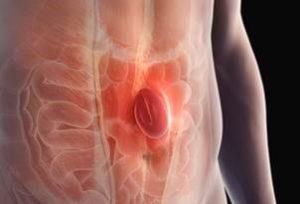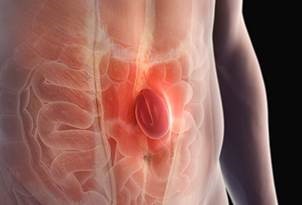
While June is Hernia Awareness Month, and most of us probably know an acquaintance or loved one who has talked about having surgery for a hernia at one time in their life, do we really know what a hernia is?
Hearing that someone has a hernia usually makes us think of pain, as well as something that happens in adults. We also might think of it as something that is not visible on the outside of a human’s body. But as always, there are exceptions to the common image of something.
For example, one of the most common types is the Umbilical Hernia. Not only does this one occur outside of our bodies, but it is most common in babies, especially those who had premature births. In this case, a small portion of the intestine forms as a bulge on the outside of the body. Fortunately for the baby, this type of hernia is usually not painful, and often resolves itself by the age of two. If it does not resolve itself, repair can be done by a very common surgical procedure.
As we get older, however, there are other hernias that can also occur on the outside of our bodies. A Ventral or Abdominal Hernia is when an injury or defect occurs in the tissue that connect the commonly known “6-pack” abdominal muscles together. Similar to the baby’s Umbilical Hernia, a small portion of the intestine forms a bulge on the outside of the body. Although the bulge actually does poke through the body, it may or may not be visible to the naked eye, depending upon the size of the herniated tissue. If difficulties or discomfort result, a common surgical procedure can fix the problem.
The last common hernia that can occur outside of our bodies is the Inguinal Hernia. It is caused due to weak lower abdominal muscles that allow a small portion of a male’s intestines to slip down into the scrotal sac. Again, a common surgical procedure can repair this if any discomfort or problems result.
When it comes to avoiding hernias as an adult, it is best to follow common advice such as lifting with your knees and not your back, not lifting anything too heavy for your body, maintaining a healthy body weight, and not smoking. It is also important to see your doctor in a timely manner when ill. Should an illness worsen and lead to a persistent cough, especially a deep and hard type, it could cause many of these hernias.
Dr. Byrd added that “with any persistent condition, such as a hernia you can feel or see or a persistent cough that can cause hernias, you can always contact the Will County Community Health Center and speak with one of our highly trained providers.”
For more on the Will County Health Department and the Community Health Center, go to www.willcountyhealth.org.
For more on hernia types, symptoms, and prevention, go to https://www.healthline.com/health/hernia#causes.

